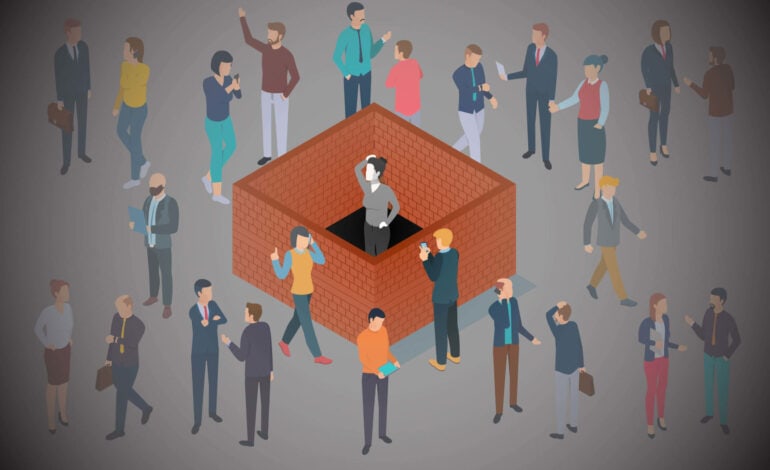Aaron Carter, younger brother of Backstreet Boy, Nick Carter, recently opened up about his mental health on the popular television show “The Doctors.”
“The official diagnosis is that I suffer from multiple personality disorder, schizophrenia, acute anxiety; I’m manic depressive,” Carter says in the clip. “I’m prescribed Xanax, Seroquel, Gabapentin, Hydroxyzine, Trazodone, Omeprazole…” the 31-year-old singer admitted on the show.
More and more celebrities are talking openly about their mental health to reduce the stigma and raise awareness.
By sharing their stories, they can encourage others to seek treatment and to realize that there is nothing to be ashamed of when it comes to mental health.
dissociative-identity-disorder
Taking A Look At Dissociative Identity Disorder
Dissociative identity disorder, sometimes known as multiple personality disorder, is characterized by two or more different personality states.
This disorder is characterized by fragmentation or splitting of identity rather than by the creation of two distinct personalities.
These fragmented personalities usually have their own gender, age, gestures, and different patterns of speech.
The individual has frequent memory lapses in conjunction with the sense of self, behavior, and cognition.
The individual may also experience an out of body phenomenon and feel out of control, or suffer hallucinations and delusions. The transition from one identity to another is often triggered by stress.
It is highly linked to past trauma, specifically physical or sexual abuse in childhood.
The dissociative aspect of this disorder is thought to be a coping mechanism to deal with the unwanted feelings, thoughts, and emotions related to the underlying traumatic experiences.
The individual will literally “shut off” or dissociate themselves from anything triggering.
Common Myths About Dissociative Identity Disorder
Myth: Individuals with dissociative identity disorder have very different and specific personalities.
Fact: Individuals with this disorder go between different personality states. They will act out of character, often not having any memory of their actions or words in these altered states, which come about to protect the psyche from triggers of past trauma.
Other mental health disorders that involve a change in personality state include bipolar disorder, borderline personality disorder, panic disorder, and schizophrenia.
Myth:Dissociative identity disorder is related to schizophrenia.
Fact: Schizophrenia is a psychotic disorder that is characterized specifically by delusions and hallucinations along with other traits such as flat affect and cognitive disturbances.
Although individuals with this disorder may have hallucinations or delusions, these are not characteristic of this disorder.
Myth: Dissociative identity disorder is distinct and stands out right away.
Fact: Dissociative identity disorder is often exaggerated in Hollywood with movie characters playing multiple distinct personalities.
Sybil, Fight Club, and Me, Myself and Irene are well-known Hollywood films that portray sensationalized characters who have similar disorder.
Its quite challenging to diagnose in reality. It must be differentiated from schizophrenia or borderline personality disorder, and can often co-occuring disorder with other mental health or substance abuse disorders as well.
Treatment For Dissociative Identity Disorder
Psychotherapy is the mainstay treatment approach for dissociative identity disorder. Different types of psychotherapy work to uncover past triggers and traumas and find positive coping mechanisms to overcome them.
The therapist works closely with the client to help blend the different personality states into one whole personality to help control the triggers. Often family members and loved ones are involved in the process.
Akua Mind and Body specializes in mental health treatment for individuals who are struggling. Whether it’s residential treatment or an outpatient program, our clinicians can help determine the plan that’s best for you. Call 1-888-336-7510 to speak with an admissions counsellor.
24/7 ADMISSION HELPLINE 888-629-6707



